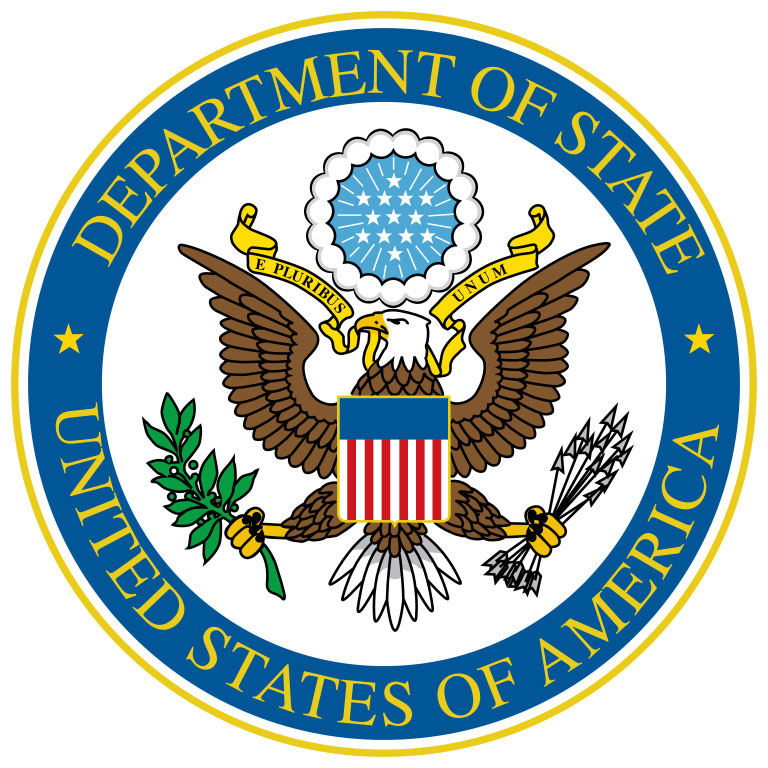It’s International Education Week!
Here’s Your Guide to Applying for a U.S. Student Visa
With nearly 4,000 accredited institutions of higher education in the United States, there’s something for everyone – from two-year community colleges to four-year universities. These colleges and universities welcome international students from all walks of life and across all fields of study. In this month’s column, we will answer some common questions on the U.S. student visa process.
Q: I would love to study in the United States. Where do I begin?
Your first step in the process is to research your options to find a college or university that best fits your needs. Choosing the right college is a difficult process for any student, but it can be especially challenging for international students. EducationUSA.state.gov has programs available to help you narrow down the options. The U.S Embassy also offers free educational consultations through our EducationUSA office. You may make an appointment at https://calendly.com/amajeed-1/educationusa-virtual-advising to speak with an EducationUSA advisor. Ask them about scholarship opportunities too!
Q: I was accepted at one of the U.S. colleges I applied to. How do I apply for the student visa?
Congratulations on getting accepted! We welcome all qualified students to apply for a student visa, and we prioritize student visa appointments to ensure that students can arrive in the United States in time for their program. To apply for your student visa, simply follow the visa application instructions at https://gy.usembassy.gov/v isas/nonimmigrant-visas/.
Do note that your school will register you in the Student and Exchange Visitor Information System (SEVIS) and issue you with an I-20 Form. You will also be required to pay a SEVIS fee, which is different from the visa application fee. Make this payment at least 3 days prior to your visa interview.
Q: When I have my interview, what is the officer going to ask me?
The consular officer will generally ask you about your plans to study, your plans after graduation, and about how you are going to finance your tuition and living expenses for the duration of your stay in the U.S. Hopefully you have already considered these topics during your application process.
Q: What documents should I bring to the visa interview?
You should bring a valid passport, a 2×2 inch visa photograph, the I-20 Form issued by your school, your DS-160 visa application confirmation page, proof of payment of your SEVIS fee, and certificates from previous studies such as CXC, CAPE, A-Levels, SAT. You must also bring evidence of sufficient financial resources to cover all tuition and living expenses in the United States, such as bank statements and sponsorship letters.
Q: Can I take my spouse and children to the U.S. with me for the duration of my studies?
Yes. Spouses and children may accompany the principal applicant on separate “F2” or “M2” visas. Each applicant needs to complete a separate visa application, and families may apply together if they can secure appointments at the same time. Again, you will need to show that you have sufficient financial resources to support you and your family to live in the U.S. for the duration of your studies.
Q: I was approved for the visa! What happens next?
We’re excited for you too! Once your application is approved, the visa is typically available for pick-up in 2 – 3 business days. As a new student, you will be allowed to seek admission into the United States on your student visa within 30 days of your school’s start date.
Q: I still have a few questions on the overall process. Where can I find additional resources?
The U.S. Embassy has four American Spots located at the National Library in Georgetown, New Amsterdam, Linden, and the University of Guyana Library. These American Spots have resource materials about U.S. colleges and universities, guidance for the application process, information on standardized testing, and financial aid. Check them out!
Also, for more detailed information on the student visa process, you may go to https://travel.state.gov/content/travel/en/us-visas/study/student-visa.html#documentation.
***
“Ask the Consul” is a monthly column from the U.S. Embassy answering questions about U.S. immigration law and visa issues. Detailed information about visas and travel can be viewed at https://gy.usembassy.gov/, https://ais.usvisa-info.com/ and https://travel.state.gov/. Applicants are strongly encouraged to prepare their own documents and avoid third-party advice. U.S. visa rules change frequently, and non-U.S. government advisors often provide inadequate or inaccurate information. Please contact our Visa Information Service Center on toll free numbers: 1-877-246-6788 or 703-988-5765 if you have general visa questions.

